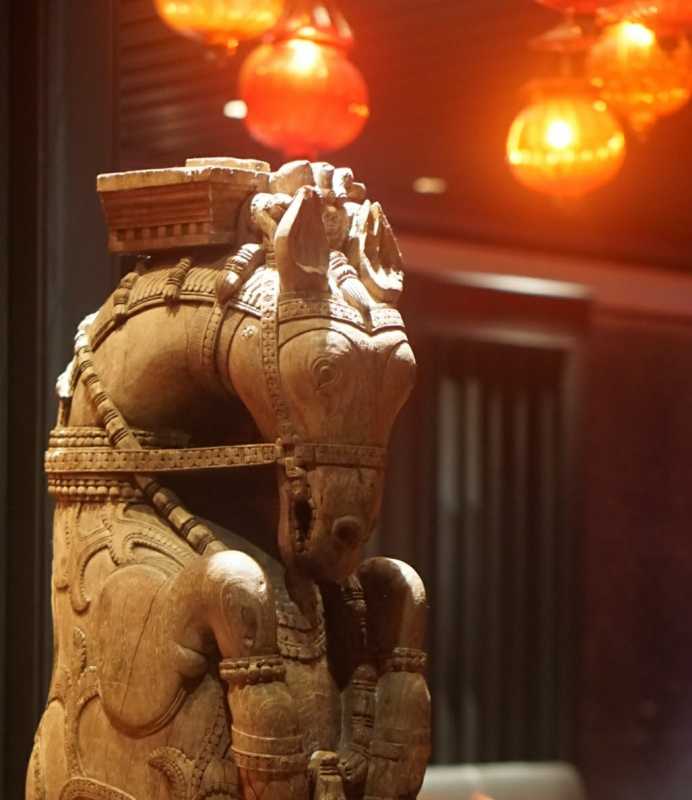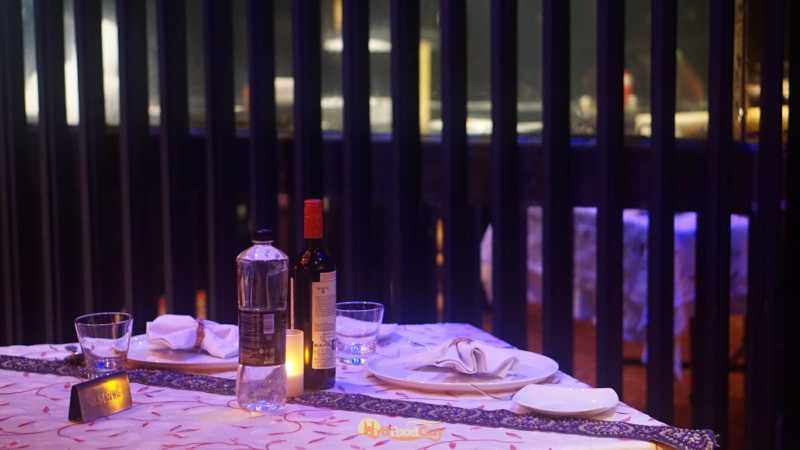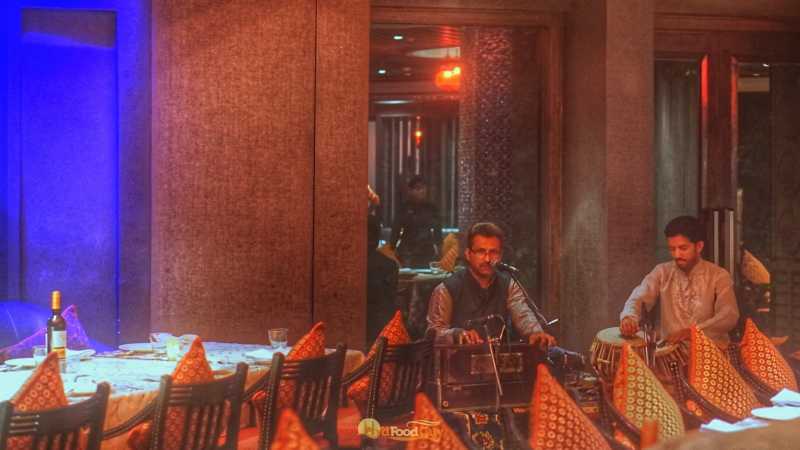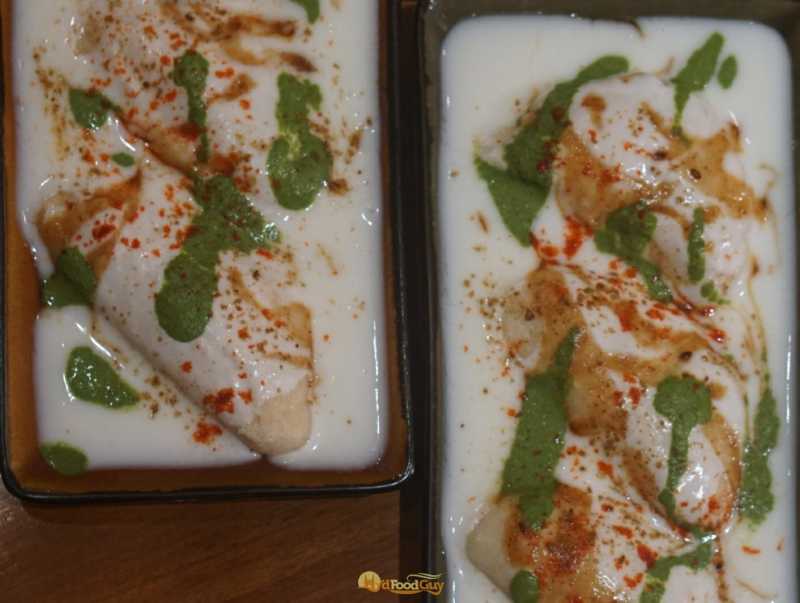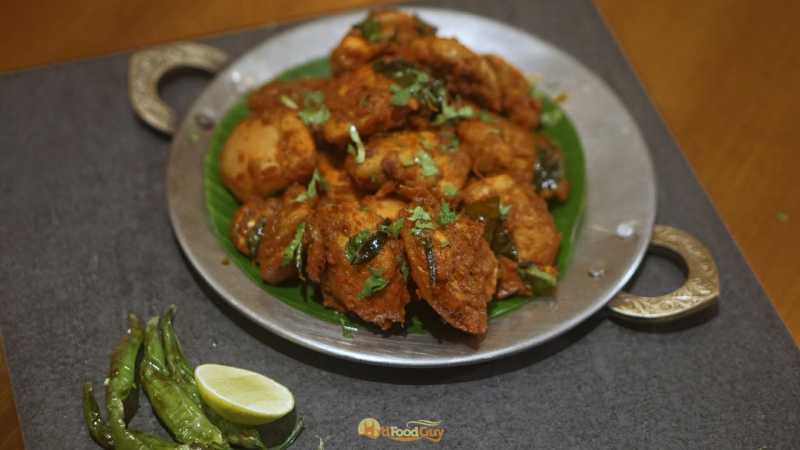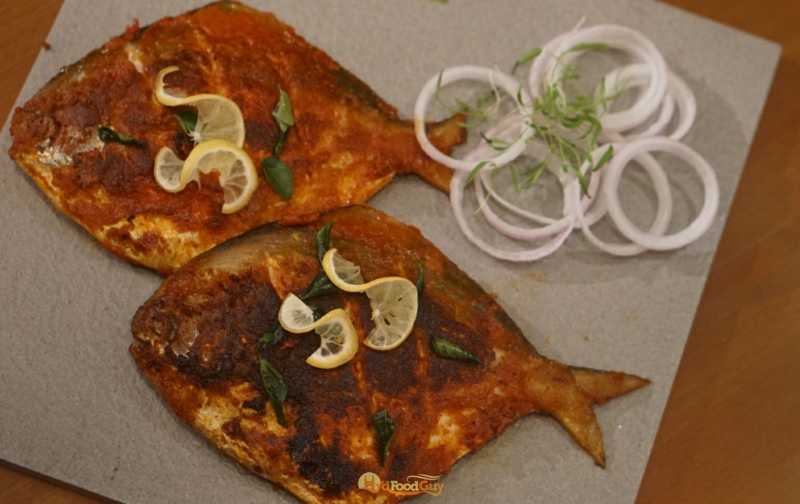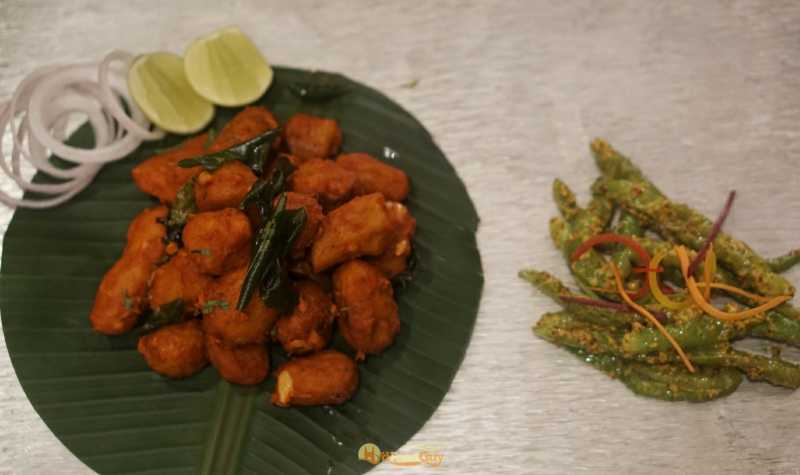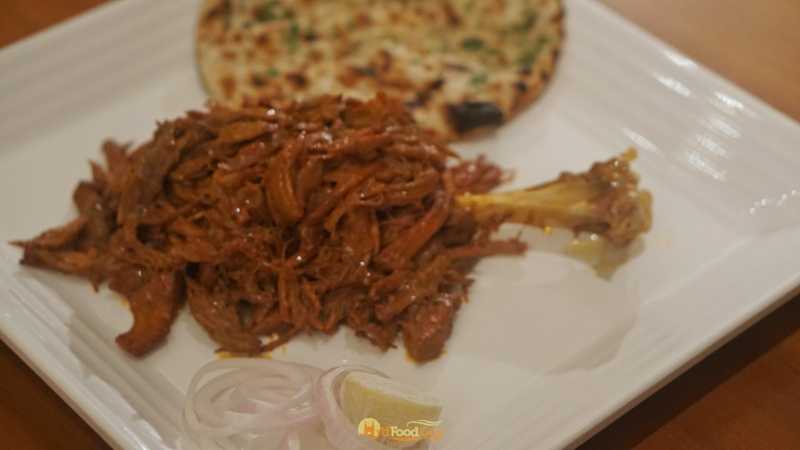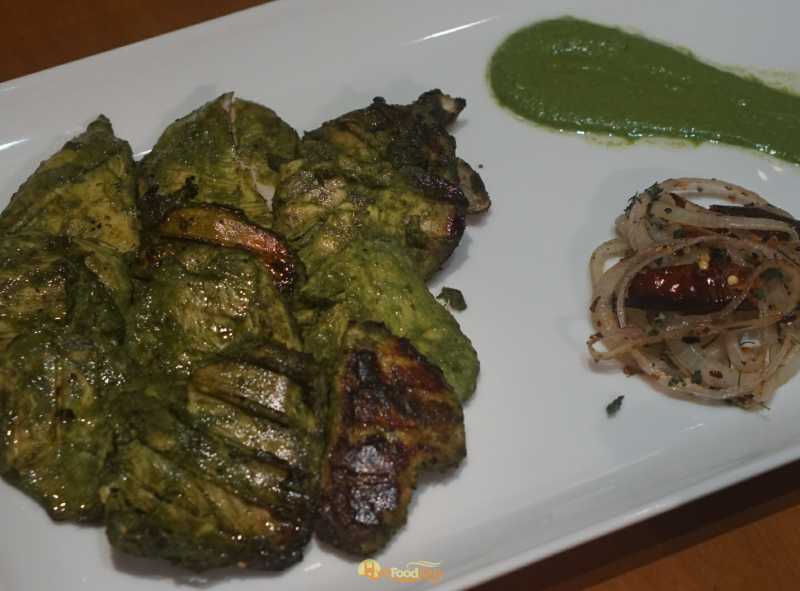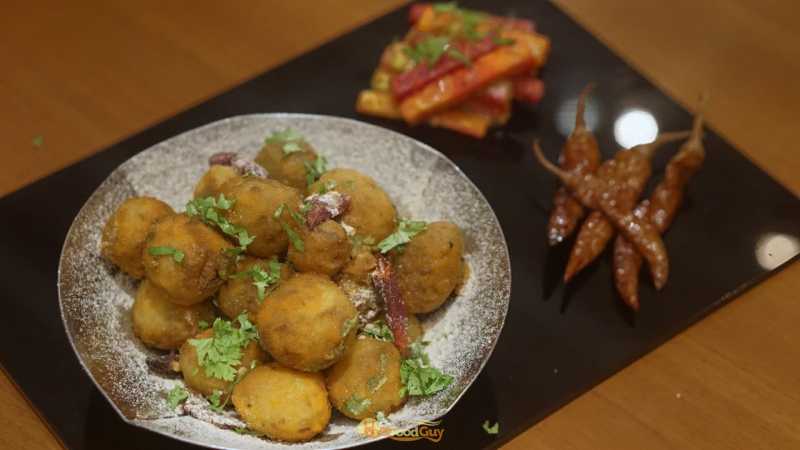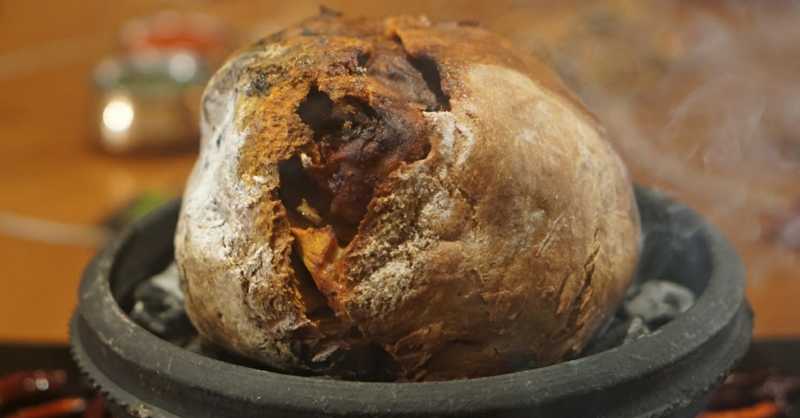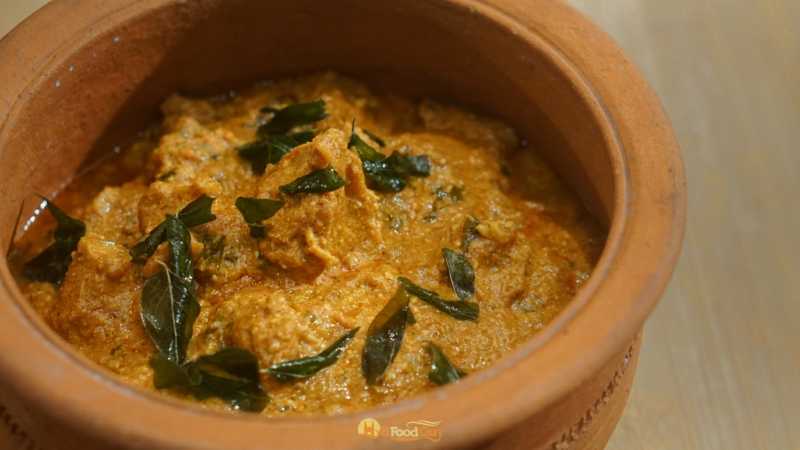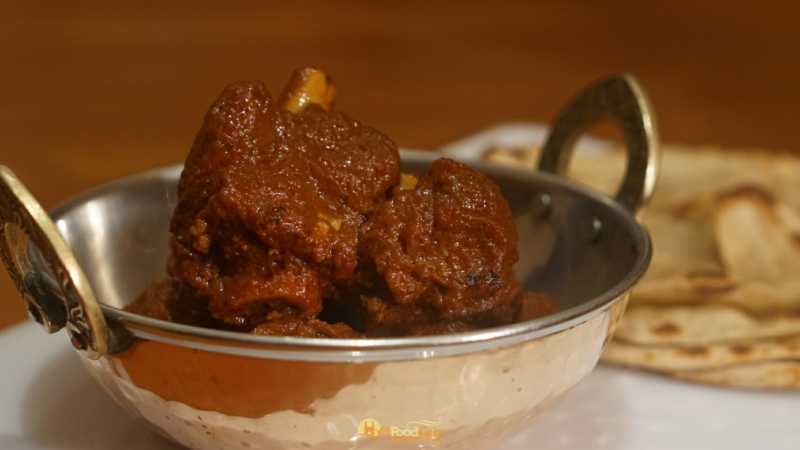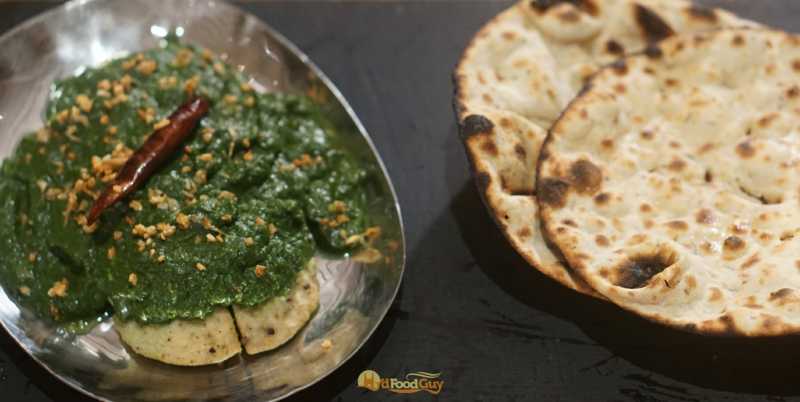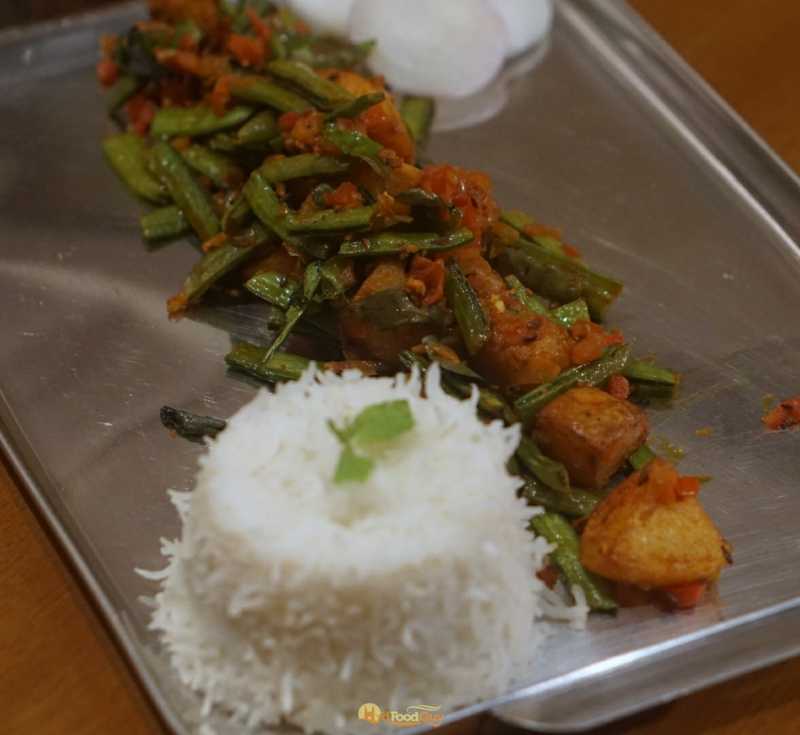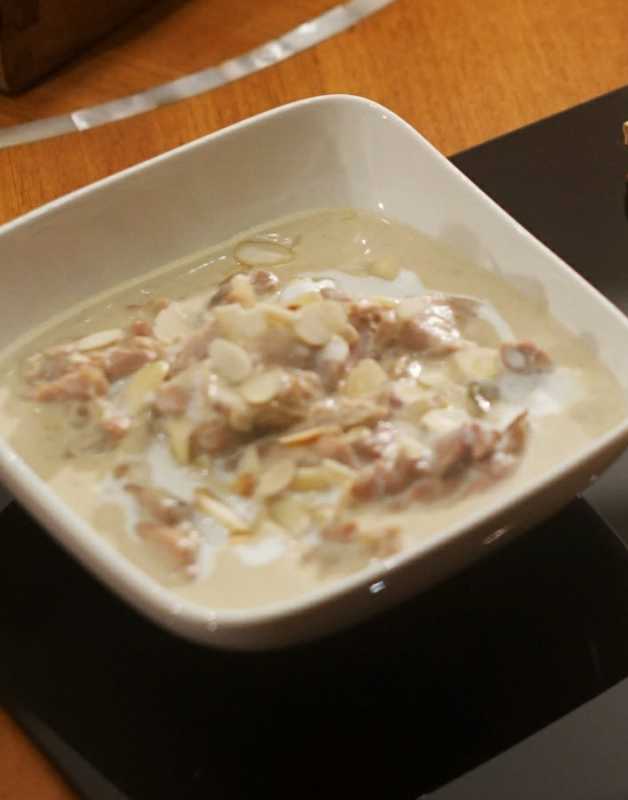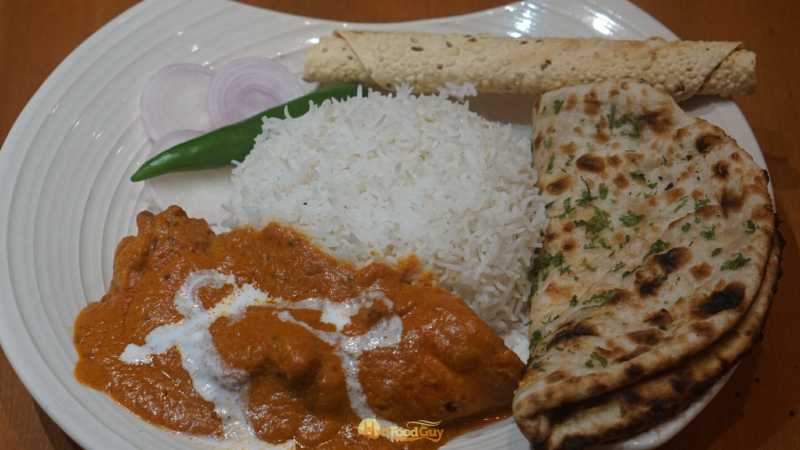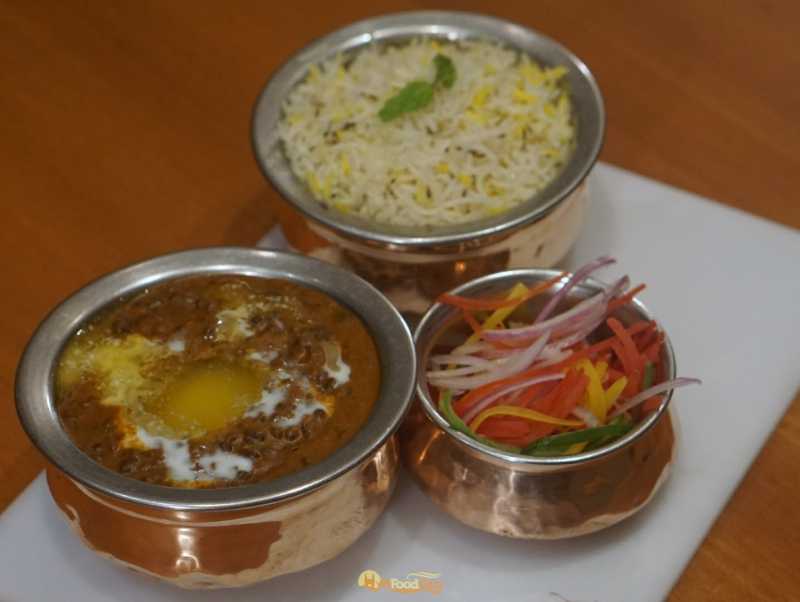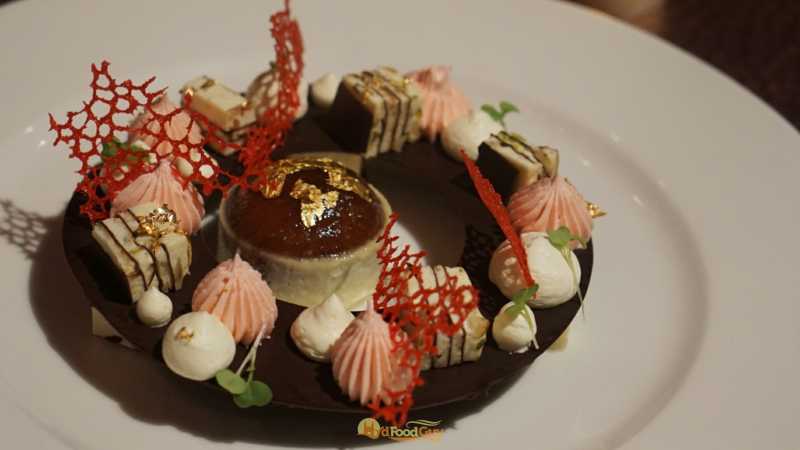Bidri, the speciality Indian restaurant at Marriott Hyderabad, is getting a new coat of paint and a completely revamped menu. The new menu builds on Bidri’s theme of ‘Cuisine of Riyasats’ showcases culinary jewels from the kingdoms of Hyderabad, Lucknow and Punjab, in addition to the local Andhra flavours. While I’ve been to Okra and Altitude at Marriott several times, Bidri had remained on my pending list. So when I received the invitation to attend a preview of the new menu, I promptly RSVPd.
The restaurant is named after the metal handicraft from Bidar district that is now the crown of Karnataka but previously belonged to the kingdom of the Nizams. Quite appropriately, you’re greeted at the entrance by an intricate silverware handiwork, which also adorns the columns. The decor is markedly retro with muted lighting and dark walls contrasted by bright red upholstery. Since the dimly lit restaurant is far from conducive for food photography, the Marriott team had laid out the dishes in a Board Room tucked next to the Altitude. And there was plenty for our eyes and lenses to feast on. Vibrant delicacies, both sophisticated and rustic, were spread across the length of the massive table. As every one of us orbited the table to finish up our food photography, we were treated to a few of the appetisers and some excelent cocktails from Altitude. The fiery Red Chilli Chicken of the Hyderabadi Chinese variety had me reaching for my tea-infused drink. Also from Hyderabad, were the Shikanja Murgh and Bandameeda Chapa. The former is a green chilli marinated kebab that derives its name from the metal clamp used to hold the slices of meat during grilling. The Bandameeda Chapa is Pomfret marinated in a lemon, pepper, ginger-garlic, and mustard oil mixture and cooked over stone. We were served a variant cooked with Sole fish since it’s easier to slice it into smaller portions. For vegetarians, Executive Chef Yogender Pal took inspiration from the popular Chicken 65 and re-created it with Arbi (Colocasia ), which is a popular ingredient in the local cuisine. We finished up our first course with the creamy and refreshing Dahi Bhalla from Punjab.
We headed downstairs to relish the remaining dishes. My first exposure to Atta Chicken was in the Sunday Brunch at Okra. A full chicken is marinated for hours and then sealed inside an Atta (whole wheat) dough and tossed inside a Tandoor. This distinctive cooking style promises to lock-in the aroma and flavours and ensures that the chicken is fully cooked yet moist and tender. However, getting it right is quite difficult. In the recent months, I’ve tried this dish at Vapour and Punjab Grill, and both experiences were disappointing. I was looking forward to Bidri’s rendition since the one at Okra was quite good. While Bidri did a better job with the dish than the other two, the Chicken was dry and not as good as the one I was served at Okra. The similarly named Aatawalle Aaloo is a very different beast from the Atta Chicken. Here, the atta is incorporated during the tempering phase. The expectation is that the atta will get roasted and add a bit of smokiness (bhuna flavour) to the dish. In reality, though, the atta flavour proved to be a distraction and I couldn’t perceive any smokiness.
These early missteps were forgotten soon enough. The kitchen pulled off the rest of the dishes with aplomb. The Raan e Bidri, a braised leg of lamb, is an absolute gem of a dish. The well-marinated meat had soaked in all the spices and had been cooked just right. The fiery Satti Mamsam Koora looked tempting and tasted divine with the Jonna Roti. Gosht Beliram is another dish that spice lovers will fall in love it. The dish is supposed to have been created by Chef Beli Ram from Lahore, which was part of Punjab before the partition. The thick gravy has a rich browned onion base that’s spiced up with both chopped green chillies and dried red chilli powder.
It wasn’t all about fiery red gravies though. I struggled to pick a favourite between the rich and buttery Murgh Tikka Makhni and the creamy and sweet Murgh Malai Korma. The Bidri Dal, which an old favourite at Marriott, impressed. Bidri Dal is creamy and delicious, but the richness has been toned down. It’s not as luscious as a typical Dal Makhni. This lends it a homely charm and lets it shine as a true comfort food. Another delicacy that garnered unanimous praise around the table is the Sepu Vadi. Sepu Vadi is a dish from the hilly regions of Himachal Pradesh. Urad Dal dumplings are steamed, fried and served in a spinach and curd gravy. The spinach gravy is simple yet sophisticated with a tinge of mustard and asafoetida.
The desserts at blogger tables hosted by Marriott are always memorable. The immensely talented and creative dessert chef, Ratheesh Unni Nair, inevitable cooks up something magical and intriguing for us. This time around he fused many of the new introductions to create a beautiful dessert platter. On the plate were Pistachio Gulab Jamun baked with crumble, Casata made with Kulfi, Rooh Afza Mousse, and Rose Mousse. The cGulab Jamun was a tad undercooked, which marred the dessert for me. But, I was the only unlucky one as no one else on the table had the same complaint.
Bidri’s new menu is a careful blend of the regal delicacies from the royal kitchens and familiar comfort food. There were a few missteps, but in a meal encompassing a dozen and a half dishes having only a couple of minor slip ups is actually rather impressive. Moreover, our preview dinner was hosted weeks ahead of the official launch in order to offer the kitchen an opportunity to iron out the kinks before going live with the dishes. With signatures like Raan e Bidri, Gosht Beli Ram, Bidri Dal, and Sepu Vadi, the new menu of Bidri is perfectly poised to build upon its legacy as one of the best Indian fine-dines in the city. A meal for two at Bidri will cost around Rs. 3,500.

